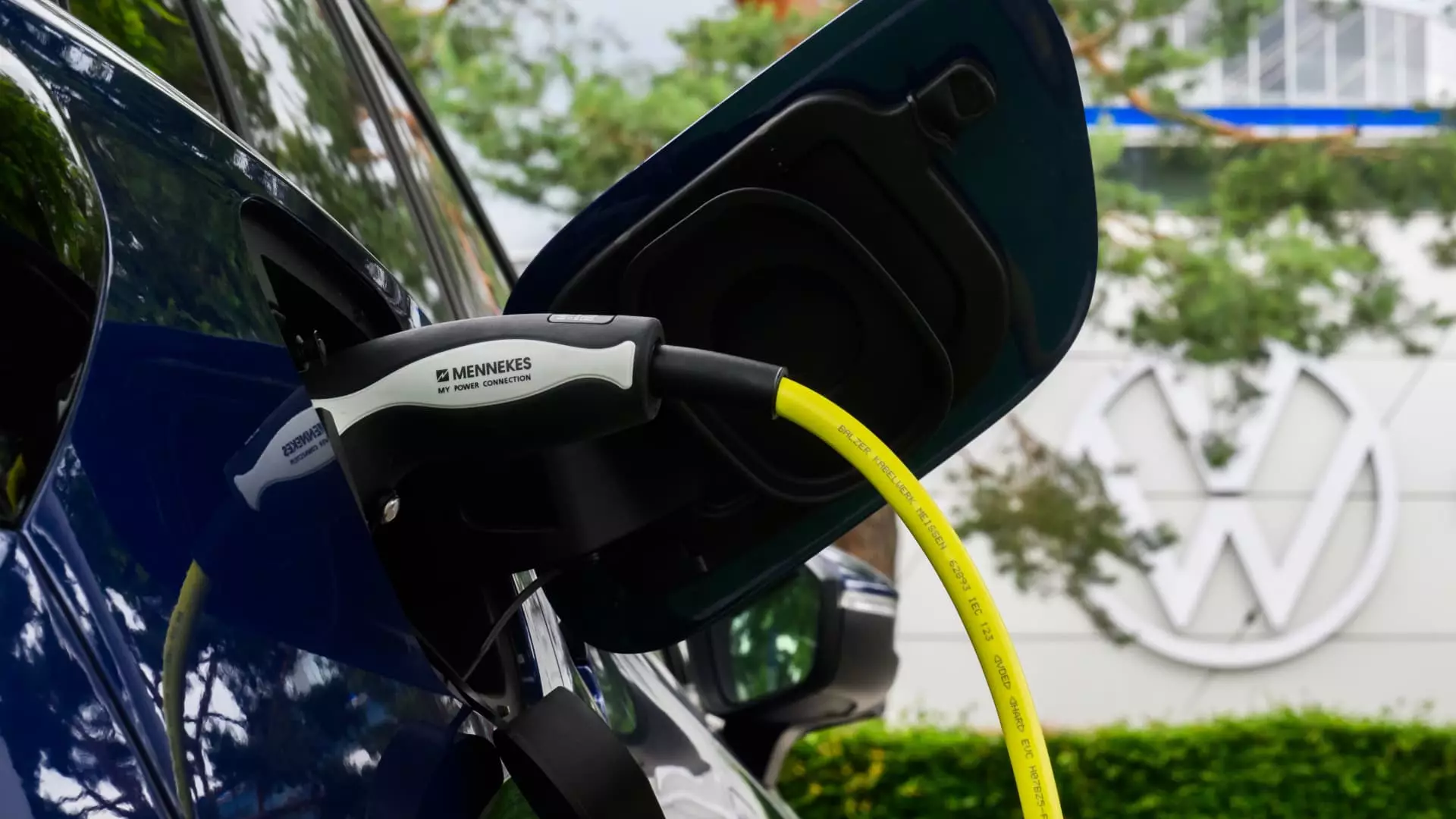European car manufacturers, including Volvo Cars, are currently navigating a complex landscape as they strive towards full electrification. Volvo recently adjusted its plan, shifting from selling only electric vehicles by 2030 to aiming for between 90% and 100% of car sales to be fully electric or plug-in hybrid models by the same year. This change reflects the need for pragmatism and flexibility in response to evolving market conditions. The company now anticipates that up to 10% of its sales will consist of mild hybrid models by the 2030 deadline.
Delays in Phasing Out Internal Combustion Engines
Crisis-stricken Volkswagen, along with other major automakers like Ford and Mercedes-Benz Group, have also announced delays in their targets to phase out internal combustion engine vehicles in Europe. Experts suggest that this trend of postponing electrification targets is prevalent across the automotive industry, as manufacturers have realized the importance of continued investment in internal combustion engine technology to remain competitive in the market.
Government Mandates and Challenges
Governments in key markets are implementing measures to encourage the adoption of battery electric vehicles (BEVs) through mandated targets. For example, the U.K. introduced a requirement for 22% of new car sales in 2021 to be zero-emission vehicles, with a goal of reaching 100% by 2035. While these mandates aim to reduce pollution from vehicles, they also pose challenges for manufacturers in meeting consumer demand and transitioning away from fossil fuels.
Volvo Cars highlighted several challenges facing the automotive industry’s electrification ambitions, including a slower-than-expected rollout of charging infrastructure, the withdrawal of government incentives in some markets, and uncertainty stemming from tariffs on EVs in various regions. These factors emphasize the need for stable government policies to support the transition towards electric vehicles and reduce reliance on fossil fuels.
Consumer Perspectives and Over-Enthusiasm
Analysts acknowledge the difficulties consumers face in transitioning to electric vehicles, considering the established technology paradigm in the automotive industry. Despite the collective push for BEVs from regulators and manufacturers, mainstream consumers may find it challenging to adapt to a new way of using and operating vehicles. This poses a significant hurdle in the widespread adoption of electric vehicles and necessitates a balanced approach towards promoting sustainable transportation options.
While European carmakers are facing short-term uncertainties and pressure to embrace EVs, they are strategically adjusting their plans to maintain profitability and flexibility in an uncertain environment. The decision to delay the shift to EVs is a calculated move to ensure long-term sustainability and adaptability amidst changing market dynamics. The direction towards electric mobility is clear, and carmakers understand the importance of aligning their strategies with this inevitable shift in the automotive industry.
European car giants are navigating a challenging landscape as they transition towards full electrification. While facing obstacles such as delays in phasing out internal combustion engines, government mandates, and consumer preferences, manufacturers are working towards innovative solutions to drive sustainable mobility. By addressing industry challenges, embracing technological advancements, and fostering collaboration between stakeholders, European carmakers can overcome the hurdles on the path to a greener and more efficient automotive future.


Leave a Reply